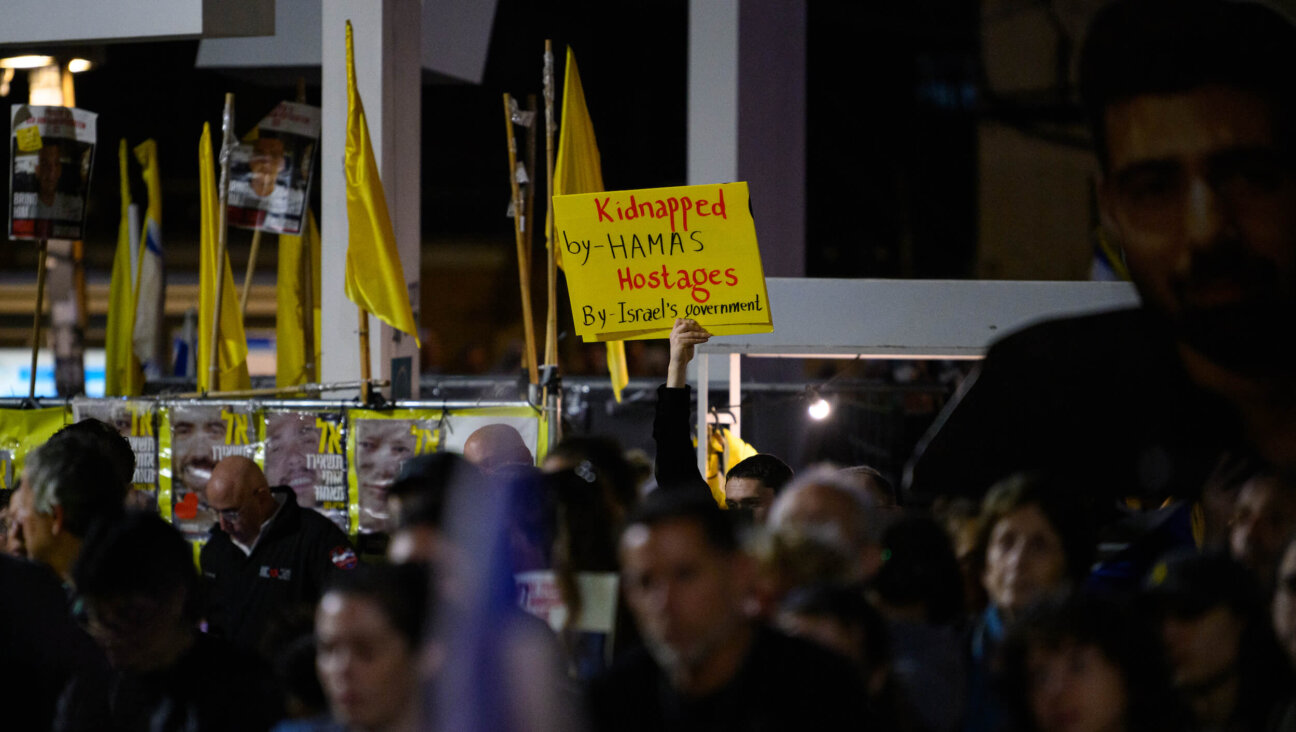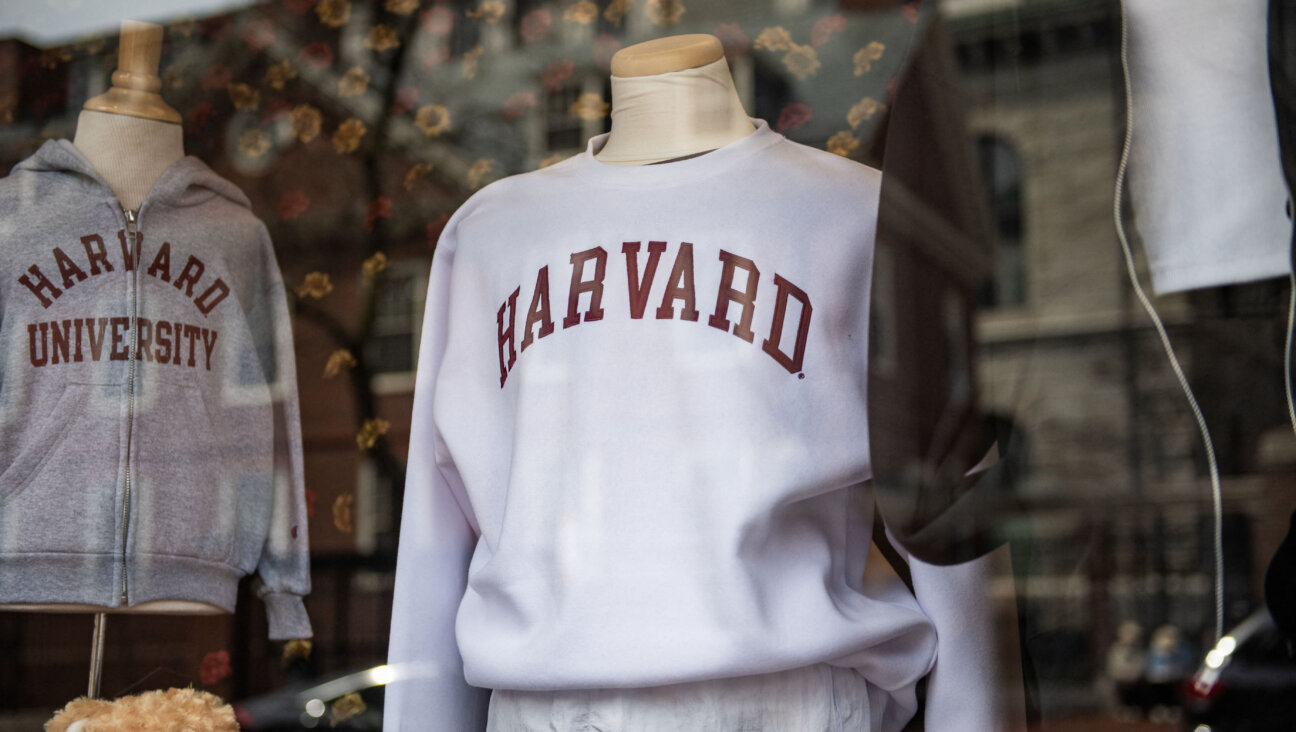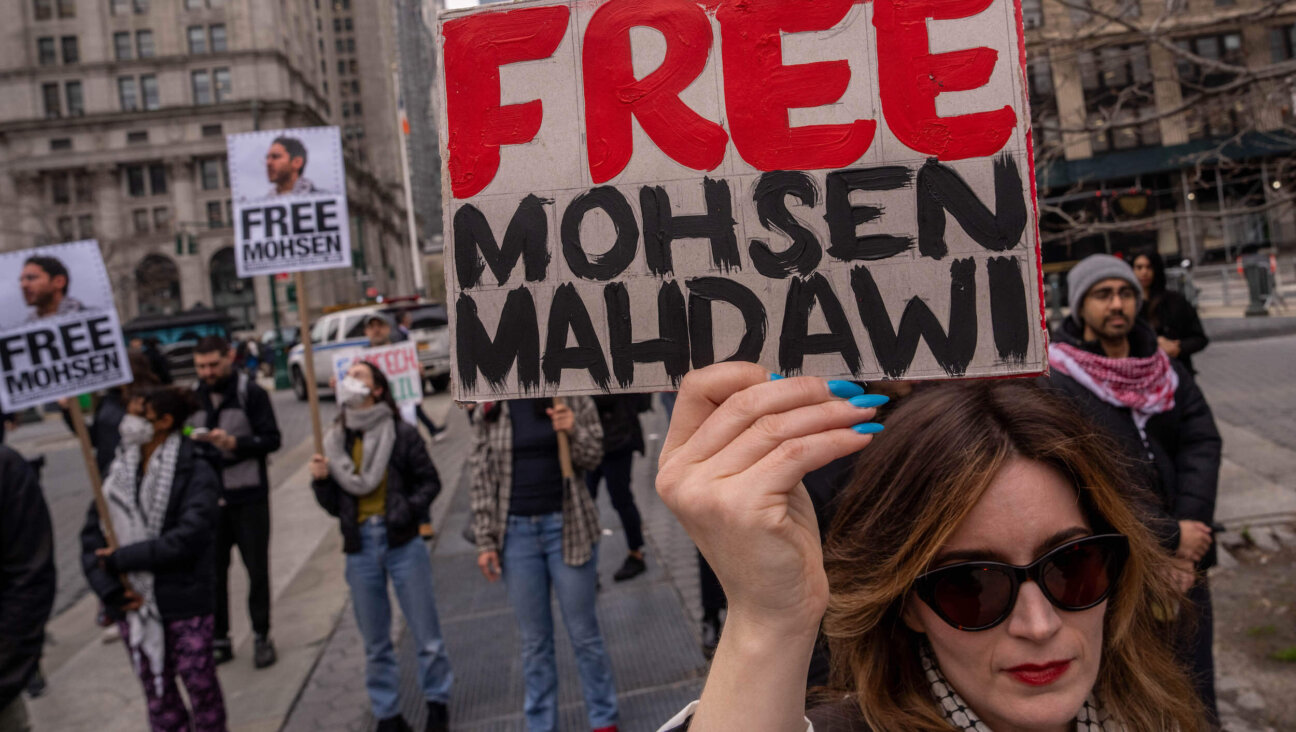Avoid Repeat of Durban Hate-Fest By Convening an Alternate Summit
The World Conference Against Racism held in Durban, South Africa, in 2001 was one of the most hate-filled, antisemitic, anti-Israel gatherings in recent memory. A follow-up conference has now been scheduled for April 2009 in Geneva. Though officially known as the Durban Review Conference, it’s been dubbed “Durban II,” and for good reason — it promises much of the same.
To date, Canada is the only nation to have officially pulled out of Durban II. But as was abundantly clear this past week in Geneva, where more than 100 Jewish organizational leaders met to discuss a strategy for dealing with Durban II, support is growing for a wider pullout from the conference. Indeed, talk was even heard of holding an alternative summit to deal seriously and efficaciously with pressing issues on the global anti-racism agenda.
The original conference back in 2001 was hijacked from the beginning. Under the aegis of the congenitally dysfunctional and now-defunct United Nations Commission for Human Rights, it was intended to identify consensus-building measures for collective international action against racism, racial discrimination, xenophobia and related intolerance. But with their insurmountable numbers, Islamic and non-aligned countries commandeered it from the outset.
They took every opportunity to de-legitimize the State of Israel and undermine the historical experience of the Jewish people. Important anti-racism issues dealing with race, gender and poverty were overshadowed by politicized rhetoric and hateful accusations.
The U.N. commission has since been disbanded and replaced by the Human Rights Council, which is overseeing preparation for the Durban Review Conference. But the change has been in name only.
The usual suspects — some of which have wretched human rights records — have already turned the review conference into an international indictment of the West, the United States and Israel for allegedly promoting Islamophobia, the defamation of Islam and racial profiling.
In a chilling echo of the preparatory meeting for the original Durban conference — a meeting from which Jewish delegates were barred from participating — the two key Durban II preparatory commissions in 2008 were scheduled on the major Jewish festival of Passover and the holiest day on the Jewish calendar, Yom Kippur. And lest any doubts remain about the intentions of the conference’s planners, one need only look to a recent preparatory meeting at which Iran led the charge in blocking accreditation for the Canadian Council for Israel and Jewish Advocacy.
By now, it has become fairly clear that Durban II will pick up where the original conference left off. It will provide yet another smokescreen to help regimes such as Iran, Libya and Cuba camouflage their own serial human rights violations. As was the case in 2001, the anti-racism conference is making a mockery of those who take human rights issues seriously.
Canada, to its credit, has decided to have no part in yet another hopelessly politicized and corrupt international forum. The Canadian government properly understood malevolent forces had already derailed the review conference, and displaying courageous leadership, Prime Minister Stephen Harper’s administration made the principled decision to not support the allocation of dedicated U.N. funding for the Durban Review Conference and, ultimately, to pull out altogether.
Canada correctly saw early conference plans for what they were: a ransom note from the event’s hijackers, who are effectively holding hostage legitimate and necessary discussion of real historic wrongs and pressing contemporary human rights issues.
The time has come for all other democratic nations to follow suit and publicly admonish those behind Durban II. Recent reports indicate that Israel and the United States are considering doing just that, collaborating on a strategy to join Canada in dissociating from this conference. This is most welcome news, and ought to encourage other countries, particularly the vastly outnumbered democracies of the world, to follow suit.
Shunning Durban II, however, does not mean that legitimate human rights advocates have to abandon the field. The antidote to that poison lies in holding a real anti-racism conference — one that has not been hijacked at the outset by the narrow vision of hatred, nor derailed by blinkered political agendas in which impunity and impotence trump accountability and action.
Such a conference, perhaps hosted by Canada, could bring together governments and NGOs from around the world that are dedicated to moving forward on international anti-racism and human rights issues. Conducted in an atmosphere of good will and un-tethered from the tainted and corrupt Durban process, such a gathering could move the yardsticks on a whole range of issues, including those relating to race, gender, religious intolerance and poverty.
It is time now for the global community to collectively assert that purposeful international action to combat racism and xenophobia can no longer be sacrificed to satisfy visceral hatred of Israel, the West and the Jewish people.
Bernie Farber is the CEO of Canadian Jewish Congress.
The Forward is free to read, but it isn’t free to produce

I hope you appreciated this article. Before you go, I’d like to ask you to please support the Forward.
Now more than ever, American Jews need independent news they can trust, with reporting driven by truth, not ideology. We serve you, not any ideological agenda.
At a time when other newsrooms are closing or cutting back, the Forward has removed its paywall and invested additional resources to report on the ground from Israel and around the U.S. on the impact of the war, rising antisemitism and polarized discourse.
This is a great time to support independent Jewish journalism you rely on. Make a Passover gift today!
— Rachel Fishman Feddersen, Publisher and CEO
Most Popular
- 1

News Student protesters being deported are not ‘martyrs and heroes,’ says former antisemitism envoy
- 2

News Who is Alan Garber, the Jewish Harvard president who stood up to Trump over antisemitism?
- 3

Fast Forward Suspected arsonist intended to beat Gov. Josh Shapiro with a sledgehammer, investigators say
- 4

Opinion My Jewish moms group ousted me because I work for J Street. Is this what communal life has come to?
In Case You Missed It
-

Fast Forward Is ‘New Absolute Bagel’ real? A sign stirs fretful optimism on the Upper West Side.
-

Opinion Yes, the attack on Gov. Shapiro was antisemitic. Here’s what the left should learn from it
-

News ‘Whose seat is now empty’: Remembering Hersh Goldberg-Polin at his family’s Passover retreat
-

Fast Forward Chicago man charged with hate crime for attack of two Jewish DePaul students
-
Shop the Forward Store
100% of profits support our journalism
Republish This Story
Please read before republishing
We’re happy to make this story available to republish for free, unless it originated with JTA, Haaretz or another publication (as indicated on the article) and as long as you follow our guidelines.
You must comply with the following:
- Credit the Forward
- Retain our pixel
- Preserve our canonical link in Google search
- Add a noindex tag in Google search
See our full guidelines for more information, and this guide for detail about canonical URLs.
To republish, copy the HTML by clicking on the yellow button to the right; it includes our tracking pixel, all paragraph styles and hyperlinks, the author byline and credit to the Forward. It does not include images; to avoid copyright violations, you must add them manually, following our guidelines. Please email us at [email protected], subject line “republish,” with any questions or to let us know what stories you’re picking up.












